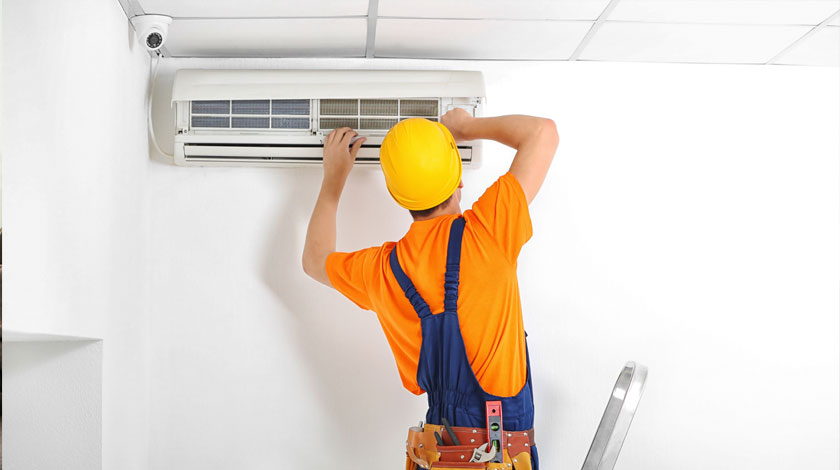
Recharge or Replace? Identifying When Your AC Just Needs a Recharge
Introduction
In the sweltering heat of summer, your air conditioning system becomes an invaluable ally. However, over time, even the best systems may falter, leading to questions such as: Does my AC need a simple recharge or a complete replacement? This article will delve deep into this crucial question, providing insights on how to identify whether your AC just needs a recharge or if it’s time for an AC compressor replacement.
Understanding Your Air Conditioning System
How Air Conditioning Works
Air conditioners operate on principles of thermodynamics and fluid mechanics. They circulate refrigerant through various components to absorb heat from inside your home and release it outside. When functioning properly, this cycle keeps your environment cool and comfortable.
Key Components of an AC System
- Evaporator Coil: Absorbs heat from indoor air.
- Condenser Coil: Releases absorbed heat outdoors.
- Compressor: Pumps refrigerant through the system.
- Expansion Valve: Regulates refrigerant flow.
Recharge or Replace? Identifying When Your AC Just Needs a Recharge
When your air conditioner starts behaving strangely—like blowing warm air when you expect cool breezes—it can be perplexing. The first step is diagnosing the problem correctly.
Signs Your AC Might Need a Recharge
Identifying Refrigerant Levels
To check if your unit needs a recharge, you can:
- Inspect the service ports for pressure readings using a manifold gauge.
- Look for signs of leaking refrigerant, such as oily residue around fittings.
The Importance of Refrigerant in AC Systems
What is Refrigerant?
Refrigerants are chemicals used in cooling systems to transfer heat efficiently. Common types include R-22 and R-410A. Each type has different properties and environmental impacts.
Why Maintaining Proper Levels is Crucial
Low refrigerant levels can lead not only to inefficiency but also cause long-term damage to critical components like the compressor. Regular maintenance checks can help avoid these issues.
Do-It-Yourself Recharge Techniques
Is DIY Safe?
While recharging your AC might seem like a straightforward job, it's important to note that incorrect handling of refrigerants can be dangerous and may violate environmental regulations.
Steps for Safe DIY Recharging
Professional Maintenance vs DIY Solutions
When to Call a Professional
If you're unsure about any step in recharging or suspect deeper issues within your system (like leaks), it's wise to consult with HVAC professionals who specialize in air conditioning repairs and maintenance.
AC Compressor Replacement: When It’s Time to Say Goodbye
Sometimes, no amount of recharging will make your old unit work efficiently again; that's where compressor replacement comes into play.
Signs You May Need an AC Compressor Replacement
Cost Comparisons: Recharge vs Replacement
| Service Type | Average Cost | |---------------------------|----------------| | Simple Recharge | $100 - $300 | | Full Compressor Replacement | $800 - $2500 |
Factors Influencing Decision Making
When deciding between recharging or replacing your AC compressor, consider:
- Age of the Unit
- Frequency of Repairs
- Overall System Condition
Future-Proofing Your Air Conditioning System
Regular maintenance schedules can extend the life of your system while ensuring you get maximum efficiency from every dollar spent on cooling costs.
Tips for Extending AC Lifespan
Conclusion: Make Informed Choices About Your Cooling Needs
Understanding when your air conditioning system simply requires a recharge versus needing an AC compressor replacement is essential for maintaining comfort at home while avoiding unnecessary expenses.
Frequently Asked Questions
1. What are common signs my AC needs a recharge?
Common signs include insufficient cooling, high energy bills, ice buildup on coils, and frequent cycling on and off.


2. Can I recharge my AC myself?
Yes, but be cautious as improper handling of refrigerants can be dangerous and illegal in some areas without proper certification.

3. How often should I have my AC serviced?
It’s recommended to have a professional inspection at least once per year to ensure optimal performance.
4. What happens if I run my AC with low refrigerant?
Running an AC with low refrigerant can damage the compressor and lead to costly repairs or replacements down the line.
5. How much does it cost to replace an AC compressor?
The cost typically ranges between $800 and $2500 depending on various factors including brand and labor costs.
6. What should I do if I suspect my compressor is failing?
If you notice symptoms such as professional air conditioning services strange noises or warm airflow when set correctly, consult with an HVAC professional immediately.
In conclusion, understanding whether you need a simple recharge or an entire compressor replacement involves recognizing specific signs, understanding how your system operates, and knowing when professional assistance is required—an informed decision could save you both money and discomfort during those scorching summer months!